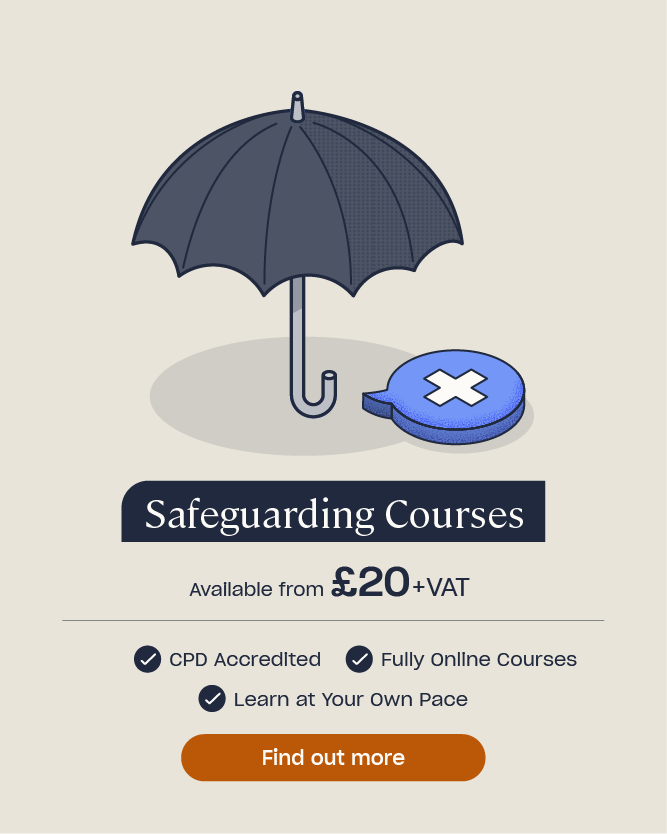The Homeschooling Debate: Advantages & Disadvantages
Since the COVID-19 pandemic, interest in homeschooling has been increasing. The exact number of children that are currently homeschooled is unknown, however it is estimated that there are over 80,000 children being homeschooled in the UK.
Choosing to homeschool is not a decision to be made lightly. Permanent homeschooling may not be what you expect and the education provided for children that are homeschooled must be efficient, full-time and suitable. To help you make an informed decision, we will look at the debate around homeschooling, thinking about the potential positive and negative effects, and how to tell if it is right for your child.

What Does Homeschooling Mean?
Legally, every child in the UK needs to have an education. However, they don’t have to attend school to get this education; they could also be educated somewhere else, such as at home.
‘Homeschooling’ is also known as ‘home educating’ or ‘elective home education’ (EHE). Some people distinguish between EHE and homeschooling, defining EHE as permanent home education, and homeschooling as temporary with continued support from their previous school (like the situation during the COVID-19 pandemic). However, the UK government uses the terms interchangeably to mean permanent home education, and this article will follow their lead.

Parents that decide to homeschool their children must ensure that the education provided is efficient, full-time and suitable for the child’s needs. However, the education provided does not have to follow the National Curriculum.
Being homeschooled means that the child’s parents or carers have to take sole responsibility for their child’s education. This doesn’t mean that you have to teach your child yourself – for example, you could hire tutors, or use online tuition – but rather if their education is found to be inadequate, you are accountable for this. The Local Authority monitors the quality of education being provided at home, including annual assessments and visits to your home. They have the power to issue a School Attendance Order or an Education Supervision Order, if necessary.
You are also responsible for covering the costs of the education, including public exam fees. Schools and Local Authorities are not required to give homeschooling parents any support, even special educational needs support. Additionally, when you withdraw your child from their school roll, their place will not stay open. If homeschooling doesn’t work, you may not be able to send your child back to the same establishment.
Flexi-Schooling
There is sometimes the option for a child to do flexi-schooling. This is where you arrange for your child to receive part of their education at a school, college or other education provider, so that they can take subjects that are difficult to teach from home. Schools and education providers don’t have to agree to doing this, but some are happy to do so; you might find a list of these particular establishments on your Local Authority’s website.

Why Do People Choose to Homeschool?
The most common reasons for parents and carers choosing to homeschool a child are:
- The child’s health issues, particularly mental health issues – for example, anxiety, school phobia, separation anxiety or depression.
- Special educational needs and/or disabilities not being met within the school system – for example, dyslexia, autism or gifted and talented needs.
- The child being bullied.
- The child’s unwillingness or inability to go to school.
- As a short-term intervention for a particular reason.
- The parent’s ideological or philosophical views – for example, they might support the concept of ‘unlearning’.
- Dissatisfaction with the school system – for example, disliking the National Curriculum, believing that children start school too early or that the school system does not suit their child.
- Distance to a local school.
Some parents also choose to homeschool as a way of avoiding their child being excluded. However, this is often more harmful than helpful, and the government advises against it.

What are the Advantages of Homeschooling?
There are a number of benefits that homeschooling has for children and their parents, including:
Individualised Learning
One key benefit is the fact that, if you homeschool, you can personalise the education that your child receives according to their interests, needs and ability. This might include spending more time outside doing physical exercise or letting them learn more about a subject that has piqued their interest. When education is personalised, children are more engaged.

Additionally, subjects that they are less confident with can take up more of the day, when necessary. In schools, whilst teachers are required to adapt their practice to meet the needs of each pupil, they have to balance the needs of the whole class. Teaching one-to-one gives the child much more attention, and leads to less wasted time. In fact, some parents report getting a day’s worth of learning completed in two hours.
The efficiency of homeschooling – and the fact that you don’t have to follow the National Curriculum or the typical timings of a school day – leaves you with time to spend broadening your child’s learning. You can make more time for play, projects, experiments and the arts. Real-life skill building – including cooking, cleaning, volunteering and learning to budget – could form a part of your school day. You could also choose to learn in different places, like museums, parks and science centres.

Achievement Without Stress
Even if you are following the curriculum – which you will need to do if you intend to enter your child in GCSE or A-Level exams – you don’t purely need to teach to the tests. Your child won’t have continuous mock exams and assessments. They will have time to learn things that they want to learn on top of what they have to learn. As a result, they could be less stressed, and less likely to experience burnout.
A lack of stress could be the reason behind the success that homeschooled children seem to achieve. Research from the National Home Education Research Institute found that, on average, children that are homeschooled scored 30% higher than public school students on their public exams.
Children who are homeschooled often have much more well-developed CVs than other children’s, due to the extra time available to them. Although some universities and employers might not understand homeschooling, many (including Oxford and Cambridge) are happy to accept homeschooled children, as long as they meet their grade requirements.

Flexibility for Your Whole Family
Being able to homeschool from anywhere, at any time, means that you could move as much as you wanted (or needed) to. For this reason, it often suits Armed Forces families, or those that need to travel.
You can schedule schooling around work shifts and appointments and go on holiday out of peak seasons. If your child or someone in your family is ill, homeschooling gives them a way to spend more time together.
There’s also the advantage of no school run – you and your children are able to get up at the time that suits you. This is a particular advantage for teenagers, since their biological clocks shift during this period of life.
Social Development
If you homeschool, your children have the ability to socially develop in a different way. For example, you might have close family relationships with strong shared values. Rather than feeling the pressure to change to fit in, they can be themselves – whatever that might look like.

Moreover, your child can be involved in the local community, and meet people of all ages and backgrounds to develop their social skills. You might join local homeschooling groups, where you can socialise with families in the same situation. Parents sometimes share their skills within these groups so that the children are taught most effectively. Your child could also join local activities, such as Scouts, sports clubs or volunteer at community events.
Continuing Education for Parents
Homeschooling is not just about your child’s education – it also helps your own. By teaching your child, you might learn things that you never knew before, whether that is a foreign language, algebra or history. You can share your interests and areas of skill with your child in a meaningful way, too. You might choose to go on trips that you both enjoy, or work together on a project, this leads to personal growth and fulfilment.

In the next section, we will explain some of the challenges that you may be faced with if you are homeschooling.
What are the Challenges of Homeschooling?
In order for you to make a balanced decision, the challenges of homeschooling need to be taken into account alongside the benefits.

Commitment
By homeschooling, you are making it your responsibility to meet all your child’s educational needs. You have to be able to deliver the depth and breadth of learning that they require in order to meet their potential. This takes time and energy, even if you’re hiring tutors for some lessons; you will still need to ensure that they’re teaching effectively, and that they are suitable to have access to children. Homeschooling also involves preparing the child for any exams that they will sit and taking them to external examination centres to sit them.
In effect, you are adding two more jobs to your role as parent: you are also becoming a teacher and an administrator. As well as doing everything you do already, you have to plan and implement lessons, organise trips, coordinate activities with other parents and make sure that you meet the Local Authority’s requirements. You will be spending a lot of time with your child – perhaps the whole day, every day – and you might not be able to do things that you normally do whilst they are at school. This can lead to stress and fatigue on your part.
Additionally, there is not much help available for homeschooling parents. Some Local Authorities operate support groups or forums, or are willing to give advice, but this is discretionary. There are plenty of internet resources but, unfortunately, the quantity of information does not guarantee quality, and they may not be as helpful as you hoped.

Cost
The greatest cost of homeschooling is that you will have to give up your full-time job in order to do so. This has implications for your lifestyle – you will need to be able to budget more than you already do. Your energy bill will also likely increase, because of spending so much more time at home.
Aside from this, you will have to buy textbooks, stationery and a computer. If your child participates in sports activities, or if you go on educational visits, you will likely have to pay for these things too. Exams are a particularly notable expense: rather than the school paying for your child to enter them, you will be responsible for doing so. Each GCSE costs around £36 or more if you’re paying the exam board directly, and each A-Level is at least £50 (or much more, if they choose an unusual subject). You also have to pay the exam centre for letting your child sit the exam there – this costs around £40 per exam, but could be as much as £100, depending on the centre.
Some Local Authorities might provide financial assistance to home-educating families, but this is discretionary. You cannot rely on any outside source of help being provided to you.

Loss of Experiences
Although we acknowledge in the ‘advantages’ section that homeschooled children do still develop socially, they naturally lose some interaction by spending more time at home. They may be out of touch with their peers, have fewer friends and have less experience interacting with people from different backgrounds. Their view of the world could be very narrow and biassed. In the worst cases, they could be brought up to be intolerant and misinformed, with little knowledge of general societal values. This could disadvantage them in the future.
There are also other experiences that homeschooled children miss out on. Schools offer work experience opportunities, the ability to participate in sports leagues and opportunities for recognition and reward (for example, during assemblies). Those who are taught at home do not experience these things, and might feel as though they have missed out.

School-Home Imbalance
A natural disadvantage of homeschooling is that you cannot truly separate home from school. Attempting to maintain structure and balance requires intense self-discipline, focus and planning. It is extremely easy for everyday distractions to get in the way of schoolwork. You might also get into an unhealthy, ineffective routine. As a result, you might not fulfil your duty of providing a good education for your child. You will need to think of strategies to prevent this: for example, you could do schoolwork in a purpose-made room. You could also have regular ‘school’ hours and rules against interruptions. However, you can’t always stop distractions from occurring, and these strategies might not work, depending on your home environment.
Further Education Difficulties
Homeschooled children may well have the ability to get into university, but the application process can be hindered by parents’ lack of knowledge about it. School staff know how to fill in the forms, and have the ability to give you references for UCAS. Parents, on the other hand, are often inexperienced and unsure who to turn to for support. Specialist admissions tutors could be hired to help, but this means further costs for you.
Additionally, homeschooling might be straightforward during the early years, but at A-Level, parents sometimes struggle providing the support and resources that students need to achieve high grades. Subjects that require practical assessments might be particularly tricky to plan for – especially if you have little to no knowledge of the subject that your child is taking. In fact, homeschooling might limit your child’s choice of A-Levels, and thus impact their future career. This is because many courses are not developed with homeschooled children in mind.

Stretched Capacity of Local Authorities
Local Authorities are obliged to check on everyone who is homeschooling. The inspections and assessments might be a stressful experience for you, but they are also a struggle for the authorities themselves: the increase in the number of children being home-educated has severely stretched their capacity to maintain contact with them. This has led to less available support for parents and carers, and less ability for children to be safeguarded – any potential harm to a child might be missed without the presence of trained school staff to pick up on warning signs.
If a child is taken out of school for homeschooling, the school is obliged to tell the local council. However, parents are not obliged to tell the Local Authority. Due to the soaring number of children being homeschooled, local authorities now struggle to attend the home of, and keep track of, all homeschooled children.

Is Homeschooling Right for My Child?
Considering whether homeschooling is right for your child or not is difficult. You need to think about:
- Why you want to educate them at home. Is it because doing so would be in their best interests?
- What your child thinks about the idea. They should be agreeable to it, because they are the person that it will impact most.
- If you have the time, resources and ability to teach your child properly. Think honestly about this.
- If your home is suitable in terms of noise, space and the general environment. Do you have the right set-up to sit comfortably – with no distractions – and work for hours?
- What support you, as a parent, have from others. There will be times when homeschooling will be difficult and you need some sort of help. Is there anywhere that you could guarantee this support from?
- What would happen if you couldn’t teach your child for a period of time (for example, if you were ill). Before you start, you need a back-up plan. If you were ill for a long period of time, you couldn’t just stop all lessons – this would mean that your child would be illegally out of education. Who would replace you as a teacher if anything happened?
- Whether you can provide the social, physical and cultural experiences to help your child develop. You need to think outside the box, and actively take your child out into the community. These opportunities won’t just come to you if you homeschool – you have to make it happen.
- Your long-term intentions for your child’s education. Will they be home-schooled forever or only for a few years? Thinking about these things could influence what you teach your child, so that they are prepared for the future.

You should also consider the advantages and disadvantages of homeschooling that we have outlined in this article, and weigh up which is greater for your child. Homeschooling can be a great decision for some, but disadvantage others – it all depends on the case, and only you know whether it will work for your family.
If you decide that it is right for you, you will need to take a number of steps to start homeschooling, such as removing your child from the school roll. You can find a list of everything you will need to do in our article ‘How to Begin Homeschooling: Guidance & Requirements’.
Choosing to homeschool your child is a big decision, and you should be aware of the reasons for and against doing so before you take action. Research has shown that being homeschooled does not impact a child’s social, emotional and psychological development, or their achievement levels – in fact, they often achieve more – but it is a huge, expensive commitment to make. Homeschooling is not right for every family, but if you have the time, money, effort, and home set-up to make it work, your family might thrive in this environment.
Further Resources:
- Safeguarding Children Courses
- Why is Reading so Important for Children?
- The Importance of Routine for Children: Free Weekly Planner
- How to Begin Homeschooling: Guidance and Requirements
- How to Become a Private Tutor: Information & Safety Guidance











